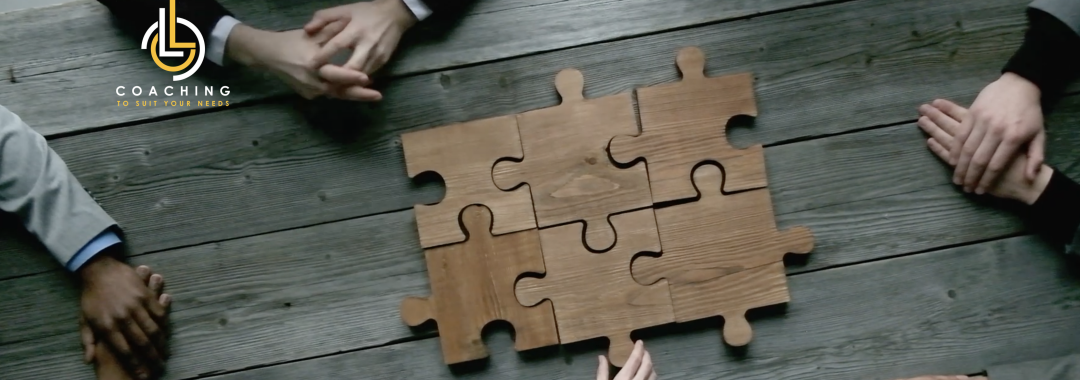What is a Sensory Diet?
Think of a sensory diet as a menu for your senses. Just like how a balanced diet provides you with the right nutrients to nourish your body, a sensory diet offers a variety of sensory experiences to nourish, regulate your senses and prolong your focus.
Imagine your senses as different taste buds, each craving a different flavour. Some days, your sense of touch might crave gentle textures like a soft blanket or a warm bath, just like how your taste buds might crave something smooth and creamy like ice cream. Other days, your sense of movement might desire exhilarating experiences like swinging or jumping on a trampoline, similar to how your taste buds might yearn for something exciting and adventurous like a spicy dish.
Just like a well-planned menu, a sensory diet includes a range of activities that cater to the needs of your senses throughout the day. It can include activities such as deep pressure techniques, fidget tools, calming music, or engaging in physical exercise. By following this “sensory menu,” you can provide yourself with the right mix of sensory input to feel balanced, focused, and calm.
Just as you choose different dishes from a menu to satisfy your cravings, a sensory diet allows you to choose activities that provide the sensory input your body needs to function at its best. Remember, everyone’s sensory diet is unique, so it’s important to explore different options and find what works best for you.
So, think of a sensory diet as a flavourful and personalized menu for your senses, ensuring that they are satisfied and nourished to help you navigate the world around you with greater ease and comfort.
Why is it important to get your Sensory Diet just right?
As an ADHD, executive function and high performance coach and psychologist, I have witnessed the transformative impact of sensory diets on many children, adolescents, and adults with ADHD.
Today, I’ll share with you some of the top 30 examples of sensory diet activities tailored to each age group. But before we delve into the examples, let’s explore the importance of understanding sensory diets and why it they are essential if you or your child have traits of ADHD.
Understanding Sensory Diets and ADHD
ADHD is commonly associated with impulsiveness, emotional dysregulation, hyperactivity, and a lack of focus. By implementing a sensory diet, individuals with ADHD can benefit from sensory strategies that assist with the regulation of their sensory needs and which are designed to address sensory processing difficulties offering structured and intentional sensory experiences that help regulate the nervous system.
Here are some reasons why sensory diets are important for people with ADHD:
1.Focus and Attention
Sensory diets can help individuals with ADHD improve their focus and attention by providing sensory input at different times throughout the day. By participating in sensory experiences, individuals can redirect their attention and enhance their ability to concentrate on tasks. can help them stay more engaged and alert, reducing distractions and improving their ability to concentrate on tasks.
2. Enhanced Self-Awareness and Sensory Integration
A sensory diet encourages individuals to become more attuned to their sensory preferences and sensitivities. This heightened self-awareness empowers them to proactively use sensory strategies to improve emotional and sensory self-regulation. Sensory diets can teach individuals with ADHD how to recognize and self-regulate their sensory needs as well as improve their sensory integration skills. By engaging in activities that stimulate different senses, such as proprioception (body awareness), vestibular (balance), and tactile (touch), individuals can enhance their sensory processing abilities. This can lead to better coordination, motor skills, and body awareness.
3. Sensory Self-Regulation
Many individuals with ADHD struggle with emotional regulation and experience heightened emotional responses. Sensory diets provide the right balance of sensory input to help individuals with ADHD regulate their sensory experiences. By engaging in sensory-rich activities, they can reduce feelings of restlessness, anxiety, and overwhelm. By incorporating activities that provide the right amount of sensory input, such as as deep pressure techniques, sensory breaks, or engaging in soothing sensory experiences, they can learn to better manage their energy levels, reduce restlessness, and improve their self-control. These activities can help alleviate anxiety and promote a sense of well-being. Sensory diets can, therefore, serve as a collection of coping mechanisms that individuals can turn to in various situations for managing stress, frustration, and sensory overload.
4. Improved Social Interaction
When sensory processing is improved, individuals with ADHD can better manage social situations, leading to improved communication and relationships with peers, family, and friends. It’s important to note that sensory diets should be individualized and tailored to each person’s specific sensory needs and preferences. Consulting with specialists experienced in sensory integration therapy such as occupational therapists can help create an effective sensory diet plan.
Common Mistakes Regarding Sensory Diets
While sensory diets offer valuable benefits for individuals with ADHD, there are common mistakes that can be avoided:
1. One-Size-Fits-All Approach
Every individual’s sensory needs are unique, so it’s essential to create personalized sensory diets that cater to their specific preferences and sensitivities.
2. Overlooking Individual Preferences
Ignoring an individual’s likes and dislikes when planning a sensory diet can lead to disinterest and reduced engagement. Including their preferences empowers them to take ownership of their sensory experiences.
3. Inconsistency
Consistency is key to reaping the benefits of a sensory diet. Skipping sensory activities or failing to maintain a routine may hinder progress and disrupt sensory regulation.
4. Relying Solely on Fidget Toys
While fidget toys can be helpful, relying solely on them neglects the diverse sensory needs that individuals with ADHD may have. A balanced sensory diet should encompass a wide range of activities targeting different sensory systems.
5. Ignoring the Impact of the Environment
Neglecting the sensory environment is a common oversight. The sensory diet should extend beyond individual activities and include modifications to the physical surroundings to minimize distractions and enhance sensory regulation.
Top 30 Examples of Sensory Diet Activities
Now that we understand the importance of sensory diets and have addressed common mistakes, let’s explore some of the top 30 examples of sensory diet activities tailored to each age group.
Children (Ages 6-12):
1. Tactile Play
Play with textured materials like playdough and kinetic sand to develop tactile sensitivity.
2. Swings and Monkey Bars
Outdoor play on swings and monkey bars provides essential vestibular input, promoting balance and coordination.
3. Mini Trampoline
Jumping on a mini trampoline helps release excess energy and improves focus.
4. Calming Corner
Create a calming corner at home with cozy pillows and soft lighting to retreat and unwind.
5. Weighted Blanket
Use a weighted blanket for deep pressure input, aiding relaxation and anxiety reduction.
6. Fidget Toys
Provide various fidget tools, such as stress balls or squishy toys, to keep little hands busy during seated tasks.
Adolescents (Ages 13-18):
Safe and Sound Protocol for Focus
7. Exercise Routine
Engage in regular physical activities like yoga, jogging, or dancing to promote self-regulation.
8. Noise-Canceling Headphones
Use headphones to minimize auditory distractions in busy environments.
9. Quiet Study Area
Create a designated study area with minimal distractions to enhance focus during homework or study sessions.
10. Scented Candles or Essential Oils
Use aromatherapy to create a calming atmosphere and reduce stress.
11. Balance Boards
Utilize balance boards or wobble cushions for subtle proprioceptive input during seated tasks.
12. Chewable Jewelry
Provide chewable necklaces or bracelets to satisfy the need for oral stimulation.
Adults (Ages 18+):
13. Mindfulness Meditation
Incorporate mindfulness practices to enhance self-awareness and reduce stress.
14. Sensory Garden
Spend time in nature, surrounded by different textures and scents to soothe the mind.
15. Sensory Breaks
Take short sensory breaks during work hours, engaging in activities like stretching, deep breathing, or doodling.
16. Desk Fidgets
Keep desk fidgets like stress balls or fidget cubes to promote focus during desk-based tasks.
17. Calming Music
Listen to soothing music to enhance relaxation and concentration.
18. Adult Colouring Books
Engage in colouring activities to unwind and promote mindfulness.
For All Ages:
Sensory Diet for More Focus
19. Body Socks
Slip into a body sock for a calming, deep pressure experience.
20. Wall Push-Ups
Perform wall push-ups to provide proprioceptive input to the upper body.
21. Scented Lotions
Use scented lotions with calming fragrances like lavender or chamomile.
22. Tangle Toys
Tangle toys offer a quiet and engaging way to keep hands busy.
23. Texture Exploration
Explore different textures with a sensory bin filled with rice, beans, or water beads.
24. Nature Walks
Take a leisurely walk in nature to connect with the environment and promote grounding.
25. Handwriting on Different Surfaces
Practice handwriting on various textures like sandpaper or fabric.
26. Resistance Bands
Use resistance bands for physical activity to promote body awareness.
27. Compression Clothing
Wear compression garments like compression vests or shirts to provide steady deep pressure.
28. Scented Playdough
Make scented playdough using essential oils to engage multiple senses during play.
29. Guided Imagery
Engage in guided imagery exercises to promote relaxation and mental clarity.
30. Mindful Eating
Practice mindful eating by paying close attention to the sensory experience of eating, such as taste, texture, and smell.
Following a sensory diet is a powerful and essential approach to support neurodivergent individuals. By providing intentional and personalized sensory experiences, sensory diets help regulate the nervous system, manage better emotions and maximise focus.
Useful Websites:
Book a Complimentary Consultation with Anna

















